
Because I am interested in what makes us who we are. And because of this man’s writing, which has to be among the best I know. Here’s the start of a long exchange recorded thanks to email over the last few weeks, with a short story writer whose collection is on the chocks with Salt Publishing…

FRIDAY 12 DECEMBER....
If you walk along Windmill Road, by Spencer Park Battersea, on top of the railway embankment, you may notice a small stone memorial. It’s a bit faded now, there are weeds. Lichen is beginning to take hold, like it was a gravestone.
At 8:10 am twenty years ago today, three commuter trains were involved in what is now known as the Clapham Rail Crash. Over 30 dead, over 500 injured, said the reports… and the numbers of dead as a direct result of the accident rose over the next few days.
One man who walked away with minor physical injuries after helping others at the crash-site was Alex Keegan. Then running a successful computing consultancy, he was on his regular commute from Southampton to visit a client in London.
For a week or so after the event, all seemed fine. Then one day Post Traumatic Stress hit, and a chain reaction of interlinked events resulted in his life being changed completely.
Alex had always wanted to write. And out of the mental chaos came the steadiness and drive to write a novel. Cuckoo, a Caz Flood crime thriller, published by Headline Books, was nominated for an Anthony award. It was followed over the next few years by four more in the series. Alex then switched to serious short fiction and has now amassed over 300 publications, many competition successes, he writes how-to articles, edits, is a regular judge for writing competitions, and is also well known as a no-nonsense creative writing teacher. His online writers’ forum, Bootcamp, was a formative place for me some years ago.
Alex’s collection of prize-winning short stories, Ballistics, is published in time for Christmas, by Salt.
He agreed to talk honestly for this blog about the crash, his writing, his teaching, his philosophy about writing and the rest…
V: I was wondering... you have always described the Clapham accident as a pivotal occurrence, one that changed you, your direction. How exactly?
A: Well, not dying, seeing the carnage, made me realise what a pile of crap working for the man was. It hit me: I have to die. I want to have done something
V: What was your job back then?
A: After graduating as a mature student (Liverpool BSC Psychology) I drifted into Computer Sales and then computing and eventually set up my own consultancy working for large corporates and McLaren Cars.
One contract was with the computing arm of a major bank and involved me in commuting to London from Southampton.
I LOATHED it. I loathed the dirty, crushed, money-grubbing soulless "everything" of it. I knew I was in the wrong place, but when a car is moving...
V: Do I remember rightly that there an element of coincidence in someone else being in 'your' usual seat on the train? Did that set up a feeling of being given a second chance?
A: The whole story is quite long. Yes, I very much think, "God missed!"
I always travelled on the train in the same seat in the buffet. There was a table with one seat opposite two. I would board at Southampton Parkway and rush to get this seat so I could scribble away or read (with nobody next to me.) One particular lady would often sit opposite with a TOME of a book and instead talk about nothing all the way with an unlit cigarette in her mouth. She was killed in the crash and I only knew her first name.
But the day of the crash I was so late I didn't even buy a car-park ticket. The train was already in and I dived on at the back.
I was walking up through to the buffet when someone I vaguely knew offered me a seat. Instead of actually saying, "NO THANKS." I made the excuse that I was going to the buffet. "Oh," he said, "Get me a coke, would ya?" I was too embarrassed to say I wasn't coming back.
I went to the buffet and someone was in "my" seat opposite the lady with the big book and the unlit cigarette. The buffet bar was closed (the attendant had arrived late for work and missed the train!) so I went back to the offered seat. The buffet was destroyed in the crash with many killed there. I think I would have been killed, and this is very strange to get hold of.
Maybe it's a second chance feeling, but I still feel a kind of guilt. I was involved in clearing the road and then in the physical rescue. Behind us (there were only a couple of passengers who did anything) they whisked away a trainload of people (I don't remember that at all) and then suddenly it was strange, unearthly, quiet, empty. As the emergency services became numerous we climbed up the bank and walked away, totally lost, very, very strangely affected. We saw a pub and headed there. That was when the cameras and reporters jumped us.
I'm being long-winded here to try to answer the second-chance question. I have videos of me then appearing on TV. There's this skinny guy, full of life, fit as hell (I was a distance runner) wearing expensive clothes, but also bloody with a partly patched-up head. I don't recognise him. I look and I see someone else. I really do. What I am now, what I do now feels like an alternative timeline. Sorry if that sounds dramatic or BS but when I look and think, I am literally disturbed by it.
V: Why did you see 'writing' as 'doing something'? How much of that 'doing something' is the fiercely honest teaching you do, and often get no thanks for?
A: Being genuinely close to death, seeing death, wondering about death, changes one's attitude to the use of one's life.
For that reason I hate waste, hypocrisy. I hate the way we cruise, wasting time. I believe that most of us only LIVE for 1% of our time. That's a tragedy.
I had always written, wanted to write, wanted to say something, wanted to be heard. That core feeling was always there but I was badly-read, left school at fifteen, was untutored, unmentored, alone in a desert for years, and how-to books seemed facile or gibberish.
And like so many starting out, I thought "Science Fiction", "Thriller", "Sexy stories", "twist-endings". You see, then, though deep inside what was driving me was WANTING TO WRITE it didn't manifest that way. It came out as WANTING TO BE A WRITER.
The first is about truth, passion, pain, going naked. The second is about wanting kudos, to be on the shelves. The first is hard, the second is just more forgettable paper.
Mentally in the year after Clapham, a huge piece of me felt as if it had gone off somewhere. I don't mean the following exactly but it was almost like my soul had floated off or that I HAD died. I felt like an automaton. I sought things that made me feel but the intensity would make me cry. I didn't want sex. I wanted to make love, and for a while, every time I did, I cried afterwards.
The intensity of how I saw everything, felt everything was scary. I just needed to do something that mattered and mattered to me. (I should say at this point, that this looks a lot more neat than it was at the time.) I was mostly OK for about four-six weeks after (except for high emotionality and a freaky body-awareness) but then in January, during an interview I "cracked" and began to cry. It was like being punched hard in the gut. Then PTSS overwhelmed me. I couldn't concentrate, rarely finished a sentence, was very "emotionally labile"... I had been in systems design/programming and became unable to do it.
All my contracts ended, no new ones came. (I was a mess) and the whole pack of cards fell down. So a lot of these "threads" were tangled. I doubt those who knew me then would see what I've written above. Much is retrospectively explained and clearer now than it was at the time.

V: Can you say something about how you turned the trauma into creativity?
A: I didn't. I just stopped chasing money and gave my soul a run out (it took a while to come back to life). In one of the stories in this collection, Spectacles, Testicles, a hard-nosed sales-manager is going to work:
Tom has come down to breakfast psyched up, ready for one more week as a sales manager. He is glass and steel; he is cold and hard. He is not a poet or a writer of prose this morning. He is neither warmth nor wood, nor grass, nor water and he is not heart, and not soul. Instead he is what he thinks he must be; hard-headed, get-ahead, efficient.
Susan should have tried this move after Tom's Sunday run when she knows he is always mellow and at his most receptive, not now. Tom knows his next move is to be angry, so he picks up the stuff and manages not to say anything else.
V: Was there a sense of reason, planning? Moving (as you said recently somewhere) towards exploration of the unexplainable.
A: Not for years, but as I approach the inevitable I describe it more and more as "beginning to understand". I have this deep feeling that it's all a kind of joke and you suddenly get (if you look), the answer, and then the lights go out.
Just before the end of consciousness, there in the dark you think, "Oh, fer fuck's sake"
V: I'm going to play Devil's advocate here. If the responses in you to the Clapham disaster come down to responses to a random event with no meaning (I take that is what you mean by, 'Oh fer fuck's sake’) or worse... a random action by some all-powerful prankster little better than yer average teenage lad, that belittles the humanity of it all.
A: No! I MEAN, even though I'm not religious (but I'd love to land on my head and wake up "believing") and I'm very unsure that there's a God - as I age I keep thinking I am getting more and more insight into "what it is", this life, living, being. I have this ironic, black-humour thought that there IS a God and the moment you "get it" you die, and that when you "see the light" it's all so incredibly obvious. (A bit like finally understanding ‘theme...’)
V: Difficult question: You were raised a Catholic. You sometimes refer to it in your work. How much if at all, does that underpin your response to the Clapham disaster? Many will have forgotten it, many will have been severely damaged by it. You've turned it into a positive.
A: No, I don't think "I" turned it into a positive. I think, for me, I got (cliche-alert) a wake-up call Right now I'm in financial stress, worried, blah-blah, but I feel so much more WHOLE. But I can't say I took a tragedy and made a positive from it. It's more like that falling on my head I mentioned earlier. I'm not the bloke who smashed his knee in Clapham. He's a cousin of mine on the bad side of the family.
I don't know if "Clapham" or dying, or thinking about dying, has anything directly
to do with my childhood Catholicism. I should write a poem: "They fuck you up your priest and nun..." but I do believe life has WEIGHT and life has resonance.
I believe it is there ALL THE TIME, every second, 24-7. We just get distracted or lazy. I forget who they were but two famous poets/writers met at the bedside of a
critically-injured or seriously-ill writer friend. The setting was awful, sad, tragic, but then one of the two spotted a droplet of orange liquid (body-fluid?) caught in sunlight, exquisitely beautiful, and told the second who also felt the wonder.
It's there in a bread-roll, it's always there, but we rush by. I wonder if religion (some religions) are about loving bread ?
Maybe fine art is the real religion?
(PS and this is important. A LOT of my work is NOT "fine-art". That's because
as a side-effect of my teaching-encouraging, I bang out OK work to show we
should write-write-write. Sadly, the OK stuff places a lot easier than the art.)
V: Explain? Why should fine art be so, any more than fine searches for knowledge, science?
A: Well maybe science would be the same "thing" (something like religion) TO A SCIENTIST But the science, while fascinating, is outside the self. It's all why-how-what, discovering life, but for me writing is all about getting closer to understanding and forgiving me, my parents, the system, the horrors as well as the beauty.
If I may get clichéd again, when we ask "What's it all about? What's it all FOR? in my case it's trying to understand my essence, my why, my what.
When an incredible painting touches us, where's the hit? It isn't in the head is it? We feel it in the gut or the chest. It's EXPLAINING something deep down. Mostly we can't understand the message, the explanation, but we sense we have moved infinitesimally towards the truth.
When that happens with a story it's almost sexual but more so, it's like heat passing up from the gut.
Yesterday, in a silly flash, I wrote this:
You know why we have a navel? Are you going to say “umbilical cord”? Nope. Wrong! When we are made (from clay) and we’re lined up, God comes along and prods us in the stomach, “You’re done! You’re done! You’re done!”
And that, until I was thirteen, was the absolute truth. I realised that I still "believe" that silliness, even though I now understand biology. I find that incredible. My mother is here, still, telling me this truth.
PS Don't expect a string of logical connected sentences from ME!
V. I won't.
Thanks Alex. I think that’ll do for now. On Sunday (14th) I’ll post the discussion on your teaching, on the infamous Bootcamp, and allied subjects.

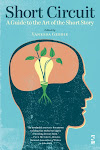
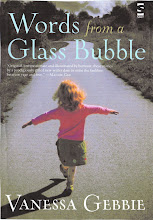

.JPG)
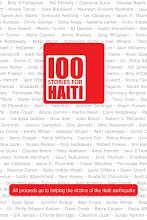
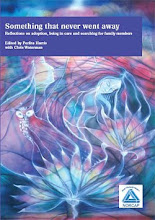
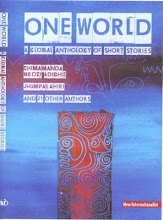
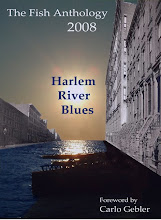

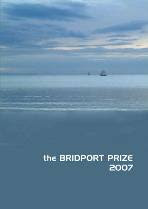
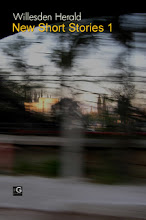



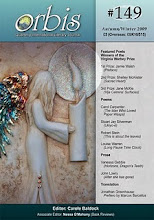
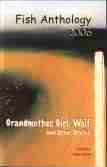
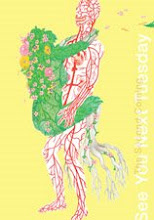


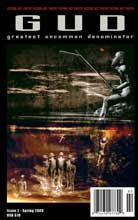
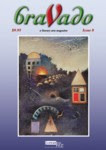


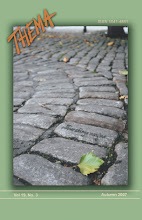
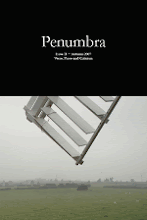
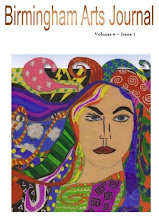
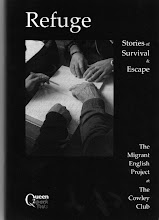
1 comment:
[[...I love that you left this on the post below the interview...]]
Oops - yes. Hadn't spotted that. But as you say, strangely apt!
M.
Post a Comment